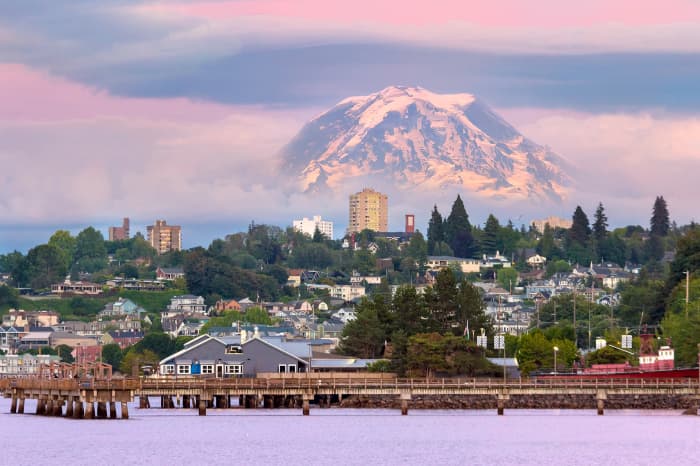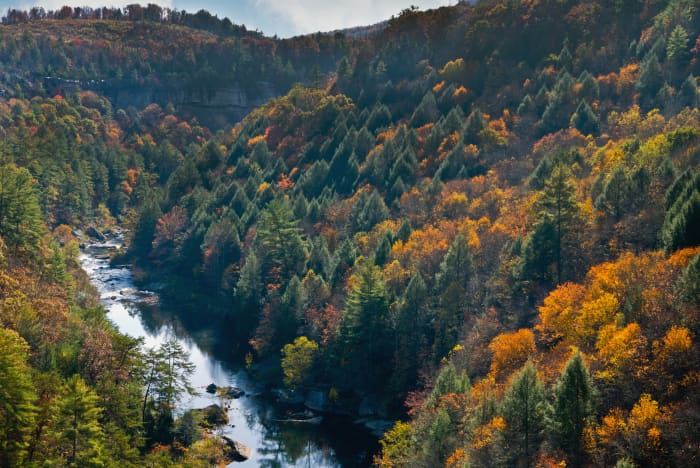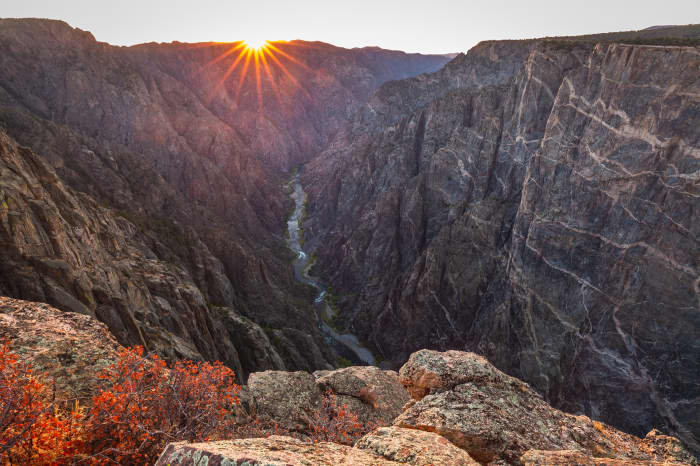We are looking to retire in about three years. I will be 67 and my wife will be 62. We don’t want to have to shovel snow or worry about significant accumulation; but we do want to be out and about during the days and evenings year-round.
We may rent, but if we decide to buy a home, our budget will be about $300,000 cash from the sale of our existing home. Other than that, our budget will be about $8,000 a month.
We plan to spend a few years exploring areas before we make a decision and settle down for good. We are looking for a balance between culture, dining and wilderness areas. Add scenic views and some space between neighbors (not isolation) to complete the package.
Can you suggest a few options for us to explore? Not too hot and not too cold.
Frank
Dear Frank,
What a wonderful combination!
Of course it all depends on what you mean by each of those. When you think of wilderness, is it bear and moose and such, or national forests and other preserved areas, including wildlife management areas and state parks, for hikes? Are those dining opportunities white-tablecloth-special-occasion places that need a larger population to thrive? Or just locally owned spots? Are you good with places that are used to dealing with snow and there’s no shortage of people you can hire to do the shoveling, or do you prefer those that get it infrequently enough that they struggle to clear the roads when it does happen?
And will you compromise on space to afford the area you want?
However you define your criteria, you have so many great options within the U.S. and its 3,000-plus counties that you’re smart to spend a few years exploring. Consider testing out your shortlist in whatever you consider its least-pleasant weather so you’re sure you are good with it. A wrong move is an expensive mistake.
Finally, do think about how you will find your community whatever you choose – that’s more important than scenery, as this person found.
Plus: There is more to picking a place to retire than low taxes — avoid these 5 expensive mistakes
I’ve previously suggested many places along the Blue Ridge foothills in Virginia that might appeal to you: Roanoke, Blacksburg, Harrisonburg as well as Lexington. In North Carolina, Asheville, Hendersonville and Brevard have all come up, as have lakes near Charlotte. In Tennessee, there’s Johnson City, Knoxville and Chattanooga, just for starters.
The MarketWatch retirement tool also flagged Carbondale, Ill., and Athens, Ohio, which also have been suggested in earlier articles.
Since I don’t like repeating myself, here are three fresh suggestions to get you started. You can find all of the “Where Should I Retire?” columns here.
Tacoma, Washington

The Tacoma waterfront is in the foreground; Mount Rainier is in the distance.
Getty Images/iStockphoto
The area around Aberdeen, Wash., popped up on the “Where Should I Retire” tool, but I figured this other gateway to the Olympic Peninsula is a better fit for you. You’d be closer to both Mount Rainier and Seattle. And Tacoma, with 220,000 people, has its own cultural offerings, including three theaters that house eight arts organizations.
Average summer highs are around 75 and low humidity; winter highs average 45. Instead of snow, though, you’ll have rain in the winter.
As you may know, Washington state doesn’t tax income. The flip side is that Tacoma’s sales tax (state, county and city combined) is just above 10%.
While the median home price here is above your price target, Tacoma’s size means there’s quite a range of properties on the market. Or go beyond city limits and look across Pierce County to get some added space between neighbors.
Here’s what’s on the market in Tacoma now using listings on Realtor.com (which like MarketWatch is owned by News Corp.).
Not quite right? An option at the other end of the state – but with snow – is the Spokane area, suggested here. If you’re intrigued by tax arbitrage, Vancouver, Wash., suggested here, lets you pay no state income tax and easily shop across the river in Oregon, where there is no sales tax.
Oak Ridge, Tennessee

The Obed National Wild and Scenic River’s visitor center is a half-hour from Oak Ridge.
Getty Images/iStockphoto
This option puts you on the other side of the country and in a city of 31,000 people some 25 miles west of Knoxville. That should give you a bit more space between neighbors while a city with 190,000 people within a short drive will give you the culture and the range of dining options – including a restaurant run by a James Beard winner.
Oak Ridge was part of the Manhattan Project during World War II, when 100,000 people descended on an area that didn’t show up on maps. It still likes the “secret city” moniker.
You’ll like that the area on average gets only about 10 inches of snow each winter. But – and there is always a compromise – it does get 51 inches of rain, well above the 30” or so that the contiguous U.S. averages and more than places with rainy reputations like Tacoma or Portland, Ore.
July highs average in the upper 80s; in the winter, daytime highs average in the mid-40s, but average lows are below freezing.
For your outdoor fix, start with Loan Mountain State Forest west of Oak Ridge. Melton Lake Park, with 173 miles of shoreline, is on the city’s eastern edge.
The Chamber of Commerce boasts that the cost of living here is 8% below the national average. Tennessee has no income tax, but the flip side is a hefty 9.75% sales tax.
The median list price for a home was $284,900 in April 2022, according to Realtor, so within your budget. Here’s what’s on the market now.
Montrose, Colorado

Black Canyon of the Gunnison National Park is outside Montrose.
Getty Images/iStockphoto
This option on the western slopes of Colorado gives you stunning scenery. Start with Black Canyon of the Gunnison National Park just outside town. Then there’s the San Juan Mountains to the south, Curecanti National Recreation Area to the east and then several national forests.
This is the smallest of my three options: Montrose has about 20,000 people, and about as many others live across the rest of the 2,200-square-foot county. So you can find space between the neighbors if you want it. You’ll also find many other retirees; 25% of the city is 65 or older. The trade-off is you may need to head to Grand Junction an hour away (and suggested here) for some of your cultural and dining options.
Montrose scores more than 300 days of sunshine. You’ll get only modest amounts of snow – about 20 inches a year – and almost no rain. Winters will be on the chillier side, with average highs in the upper 30s. Summer highs average in the upper 80s.
I’ll be honest – Montrose could be a budget stretch for you, depending on how much space you want. Home prices have jumped since the pandemic, though this city is still considered affordable by Colorado standards. Here’s what’s on the market now, according to Realtor.com.
Readers, where should Frank and his wife retire? Please leave suggestions in the comments section so all can see.
